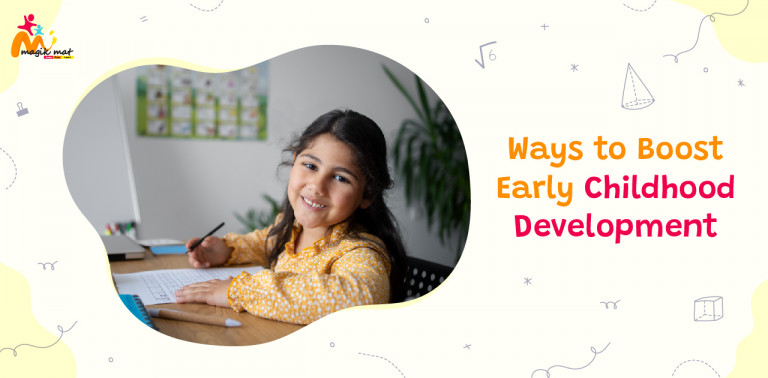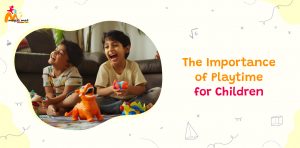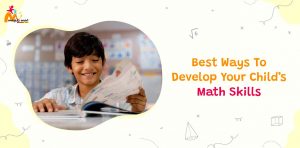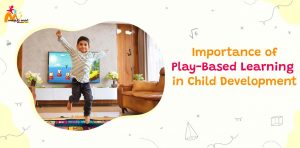Introduction
Have you ever wondered about the exceptional capabilities exhibited by children at a young age? Early learning holds significant importance for children in the context of our increasingly competitive world. Parents and educators carry the responsibility of supporting and optimizing early childhood development and laying the groundwork for the future success of children. The opportunities are vast, ranging from fostering emotional intelligence to developing strong cognitive skills. In this blog, we will explore ways to boost early childhood development.
10 Ways to Boost Early Childhood Development
Early childhood development is crucial for a child’s overall well-being and future success. Here are some approaches to encouraging and improving early childhood development listed below:
Stimulating Environment
A stimulating environment refers to an environment that offers a variety of engaging and enriching experiences for children. Stimulating the environment for children with educational products can be an excellent method to improve their learning and development. An educational product like Magikmat fosters creativity and problem-solving skills in your child.
Magikmat is an innovative teaching product that engages and entertains children. Magikmat makes learning an adventure. It has advanced technology that combines physical play with educational content. It offers subjects such as math and English. Magikmat provides a variety of interactive activities and puzzles that encourage collaboration, creativity, problem-solving, and critical thinking. Through attractive graphics and engaging audio, kids may learn about a variety of subjects in a holistic environment.
Creativity
When children are given the opportunity to express themselves creatively, they not only develop a sense of self-assurance but also acquire the ability to approach challenges from various angles. Children can express their uniqueness through creative efforts to recognise each child’s individuality.
Sensory Exploration
Give your child a chance to discover their senses. You can help their cognitive development as well as their understanding of the world around them by encouraging their sensory development. Let them experience novel sounds, bright colors, and fascinating textures. Each new sensory experience they have enlarges their brain’s architecture by forming new nerve connections.
Responsive Caregiving
It is essential to handle a child’s emotional, physical, and social needs with care and understanding in order to foster their well-being. Create a stable bond by being kind, offering support, and providing guidance when necessary. By responding to these needs in an appropriate and sensitive manner, you can create an atmosphere that promotes healthy growth and enhances the attachment between you and your child.
Language-Rich Environment
Engage children in talking, storytelling, and reading from an early age. Language exposure helps children build their vocabulary, communication skills, and cognitive abilities, all of which contribute to their overall development.
Visit Interesting Places
Visit Interesting Places like farmer’s market, library, or children’s museum in your community to spark their curiosity and provide them with “hands-on” experiences. After visiting ask them questions and watch their responses. Both parents and children may gain something from these experiences.
Healthy Nutrition
For healthy growth and development, children need proper nutrition at the right time. Ensure that children have access to a well-balanced diet, including fruits, vegetables, whole grains, and proteins. Good nutrition supports brain development and overall growth.
Problem-Solving Skills
Life requires the ability to solve problems in every situation. The development of problem-solving skills should start in preschool since they are essential for success in learning, interpersonal relationships, and even the most basic routines of daily life. Through discussions, games, and activities, children’s problem-solving skills can be developed and improved.
Regular Exercise
Regular exercise is essential for children’s motor skill development and overall health. It is essential to provide kids with opportunities to engage in physical play activities such as climbing, jumping, and running. These activities not only help them develop their motor skills but also improve their overall physical fitness. Encouraging kids to participate in such activities improves their coordination, balance, and flexibility. Physical activity is also important for maintaining a healthy weight, improving heart function, and improving mental well-being. We can help children’s holistic development and create lifetime physical fitness habits by including frequent exercise in their routines.
Healthy Sleep Habits
A regular sleep schedule has various advantages, including improved memory consolidation, healthy brain growth, and overall physical and mental well-being. Children can increase their cognitive function, attention span, and academic achievement by following a regular sleep schedule. Sufficient sleep also helps with mood regulation, lowering the chance of developing mental health problems, and strengthening the immune system. As a result, establishing and maintaining a consistent nighttime routine for children is crucial for their general health and development.
Conclusion
Early childhood development plays a vital role in shaping a child’s future. It sets the stage for lifelong learning, fosters holistic development, and lays a strong foundation for success. By prioritizing early childhood education, providing nurturing environments, and promoting stimulating experiences, we can maximize the potential of children and empower them to thrive in an ever-changing world. Investing in early childhood development is beneficial not only for individual children but also for the well-being and progress of society as a whole.
Frequently Asked Questions
What is early childhood development?
Early childhood development refers to a child’s physical, cognitive, social, and emotional growth and learning that takes place from birth to about the age of eight. It includes a wide range of elements that lay the groundwork for future development, including language acquisition, motor skills, problem-solving skills, social connections, and self-control.
What are the 5 pillars of early childhood development?
* Cognitive development
* Social and emotional development
* Speech and language developmen
* Fine motor skill development
* Physical development
What is the age range for early childhood
The age range for early childhood typically refers to the period from birth to around 8 years old. It is a crucial period for children to learn essential skills, build relationships, and explore their surroundings. Early childhood education and care are vital in nurturing children’s comprehensive growth and establishing a strong foundation for their future learning and overall well-being.





